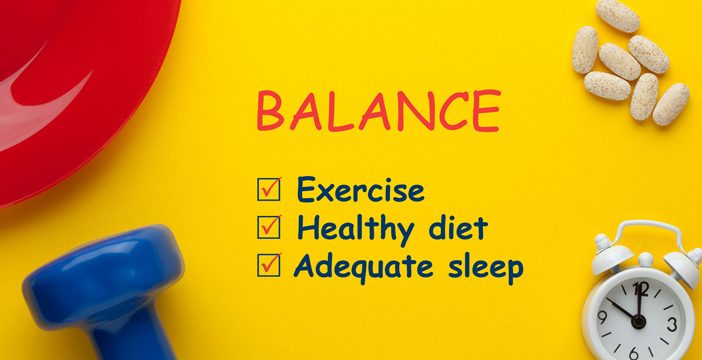
If one were to hazard a guess at how much attention we pay to body weight and the pursuit of weight loss in our society, it would be a huge amount (no pun intended). We are almost obsessed with body weight (some would want to delete the ‘almost’ from this sentence). Unfortunately, our cultural norm is that thinner is better, and thin is best. If there is one belief that is worth giving up, it is “my weight is my worth.” In fact, all you learn from measuring your weight is the degree of gravitational pull on your body. You don’t learn much about your health and you learn nothing of your worth!
So, my first point is that body weight is primarily determined by genetics, culture, environment and the brain, more so than by behaviour. Let me say this clearly: weight is not a behaviour. Now compare this to the dominant narrative that a person can achieve their goal weight by eating less, moving more and using willpower. It turns out this is a false narrative.
The impact of genetics on body weight
Body size is inherited, and bodies come in a variety of shapes and sizes. We have made a grave error of judgment by settling on one specific body shape as better than another. We must accept that weight is not like a room thermometer, where you can dial up a specific number and the system controls are such that you know with confidence that the room will reach that temperature. However, in the medical management of obesity, the amount of weight lost by any person is not predictable. Studies will tell you the average weight loss for the whole group, but average does not reflect individual differences.
Why is this important? Well, with our cultural norm that less weight is better, people set high expectations of themselves. Most people would think, “If my friend lost 25 kilograms by doing spin classes, I will join spin classes to lose 25 kilograms.” It is not so easy to adopt the idea, “If that person lost 25 kilograms by doing spin classes, I will try it and see how much I might lose.” When people set goal weights, they usually identify specific numbers that represent their future success. If the specific number is not reached the person may feel like a failure. This sets up what is called internalized weight bias.
The impact of environment
You might ask, “Why can’t I get to my goal? I will just work harder.” In addition to genetics, we need to appreciate the power of our environment. We have drifted toward lifestyles that are both sedentary and associated with overconsumption of nutrition-poor, calorie-dense foods. Human nature is such that we eat what we are exposed to, and we take advantage of any shortcuts that save time. If you must pick up 2 kids from school and deliver them to an afterschool activity before ferrying them home to dinner, you can be sure you are pressed for time. Ordering fast food makes perfect sense – it is a solution to the problem. Now consider food insecurity issues; you have to be able to afford and access healthy foods to eat them. The issues are far more complex than simply choosing healthy food.
The reason I am going on about this before talking about all of the successful things you can do to achieve your healthiest weight is because of the neurobiology of eating. The bottom line is that your survival instincts are such that your brain will protect your highest adult weight. As our weights have gone up over the past 50 years almost all of us have pursued weight loss with many episodes of temporary success. Have you noticed that early in your journey your weight drops nicely but after a period of time, the weight loss slows down and then stalls?
Would it surprise you to know that your weight loss plateaus because of what happens in your brain? As weight loss happens your brain turns on hunger signals, turns down fullness signals and slows down your metabolism. This all happens in nonconscious areas of the brain. It is mother nature stepping in; your brain perceives weight loss and this evokes a “starvation response;” if your brain thinks you are starving it will respond to try to regain weight. This is no different from your body temperature. If you get cold you will shiver to raise your core temperature, and if you get hot you will sweat. This effect is biological, not behavioural.
Why managing expectations is critical
So, would you consider separating behaviour from biology? Healthy behaviours lead to healthier outcomes. The key is to engage in behaviours that can be sustained. Here is where expectations are critical. If your expectation is to achieve a specific weight goal and that does not happen, you may feel like a failure. If your expectation is to develop healthy habits that will improve your health, function and quality of life and this produces some weight loss, you can feel like a success. In fact, you are a success!
If you make behaviour your goal and not a specific number on the scale, you will be much more likely to feel like a success and be successful because behaviours are more under your control than biology.
What behaviours should a person engage in to improve their weight, health and quality of life?
As a psychologist in the field, I hear this question all the time. It turns out that there is no “one size fits all” approach to behaviour. Some people hate exercise, while others love it. What you do, and how often you do it, has to take into consideration how effortful a behaviour is for you and how rewarding doing the behaviour is. I recommend that when you consider taking on a new health behaviour to achieve your healthiest weight, ask yourself 3 questions about the specific behaviour (it could be jogging, swimming, ketogenic diet, intermittent fasting, etc.).
- Am I interested in trying this behaviour?
If yes, go for it. If your answer is no or you’re unsure, give it a try but don’t set your expectations too high. The behaviour may stick, but the ones that hold personal interest for you are more likely to sustain.
- When you do the behaviour, are you glad that you did?
If a behaviour is to be sustained over time it is easier if that behaviour is reinforcing to you.
- When you do the behaviour do you want to do it again?
This is where true motivation comes from, i.e. doing behaviours that you look forward to.
Notice that this approach is very different from the current focus on popular health fads. A couple of years ago, the ketogenic diet was the ticket; now intermittent fasting is very popular and we all know that another approach will soon make it into the public eye. I suggest to you that there is no magic in any given approach. The magic is more related to my 3 questions above. Find the behaviours that fit you, and that are consistent with your personality and your values.
When you consider behaviour from this perspective, an endless number of goals can be achieved. Most people have a pretty good idea about health behaviours: exercise is good for you, eating regular, balanced meals is good, processed foods are not healthy choices, getting enough sleep is good, too much alcohol is unhealthy and not taking medications as prescribed reduces their effect. Have fun and try to identify behaviours that fit you.
How to achieve your goals
What happens next? Well, once you set a goal that is meaningful and doable for you it is best to take a “slow and steady” approach to change. Set goals that are realistic and achievable. Setbacks are inevitable and a behaviour can only be sustained if setbacks are addressed. Try to resist the urge to “go big or go home.” This is a common problem with New Year’s resolutions. We bite off more than we can chew. Stepwise goals are easier to achieve and easier to learn from.
How do you define success?
What are the markers of success? This is a question that is beginning to be better understood. In the past, our approach was to recommend a specific behaviour, like the ketogenic diet, running 10-kilometre fun runs, etc. We did our best to follow the rules. Barriers and setbacks were stressful and many of us ended up feeling like we had failed. Now, we have a better understanding of the formula for sustained behaviour change.
There are 3 outcomes that are associated with long term success:
- Adherence
By adherence, I don’t mean “Can you stick with the program?” I mean the opposite: “What behaviours can you do that you are able to stick with?” Find those behaviours, even if they are small at the beginning; for example, “I hate exercise but I have to do this 5-kilometre run that I set as my goal” might be better reframed to, “I hate exercise so I am going to organize walks with a friend, since socializing makes the walking more enjoyable.” Adherence can be seen as empowering.
- Self-efficacy
This is a fancy word for confidence, but also the confidence to overcome barriers. Remember above when I said that setbacks are inevitable? They are a necessary condition for learning. If you welcome setbacks as opportunities for learning, you will figure out how to adjust the behaviour to make it fit. Let’s say you change your eating habits by cooking differently at home. The first time you eat out you might find it difficult. Self-efficacy is about finding ways of dealing with barriers like this (for example, check out the menu online and choose your meal before you go to the restaurant to reduce temptations). Self-efficacy is about being flexible and compassionate, and allowing yourself to learn what works for you.
- Intrinsic motivation
The final stepping stone for success is finding the personally meaningful reasons why the behaviour is worth it to you. Healthy behaviour can be hard and require ongoing effort. If you link your personal values to your behaviour this can be useful. The question for you might be closer to, “Is this behaviour worth it to you?” more so than, “Is this behaviour fun?” Think of relationships, parenting and careers. These activities can be stressful, but they are more about their value than the amount of fun involved. I often put it this way: apples are always healthier for you than slices of apple pie. Slices of apple pie are always tastier than apples. Good luck! How do you choose apples over apple pie in this case? Well, turns out that this is not the best question. A better question is, “What is important enough in your life for you to choose apples over apple pies?” Value-based goals are associated with long-term success and overcoming barriers.
I hope this article has given you food for thought.




